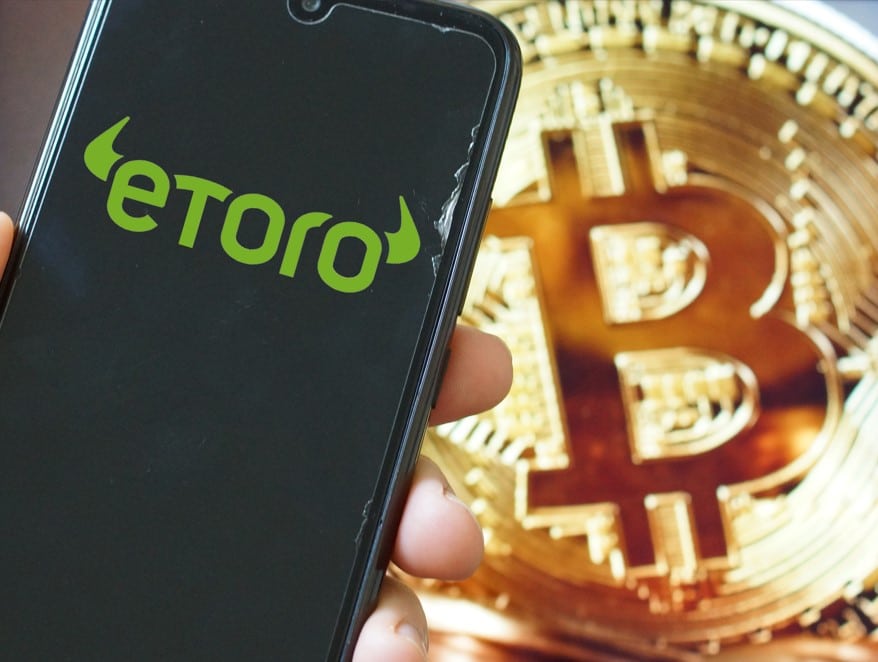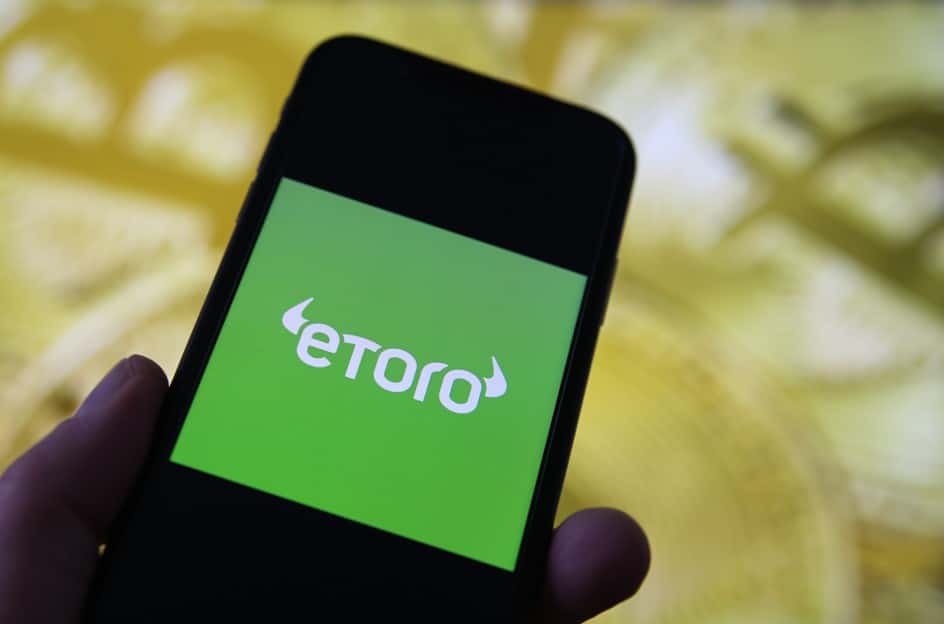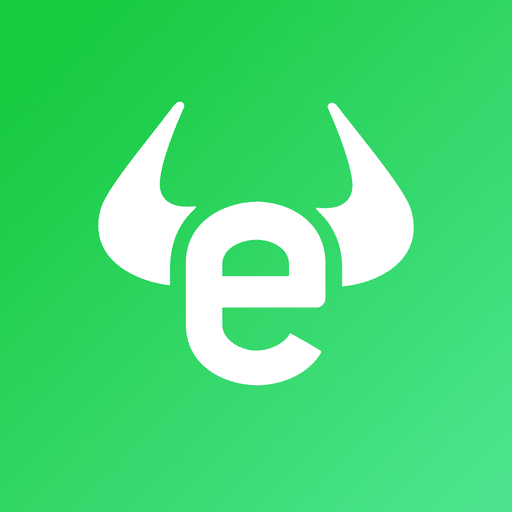eToro is a renowned online trading platform that offers its users a unique opportunity to trade various financial instruments like stocks, cryptocurrencies, commodities, and forex. One of the most notable features of eToro is its demo account, which allows users to test the platform's features and functionalities before committing real funds.
The eToro demo account is an invaluable tool for both novice and experienced traders, as it offers a risk-free environment to experiment with different trading strategies and learn the ins and outs of the platform. In this article, we will show you a step-by-step guide on how to open an eToro demo account and a detailed list of all the features and benefits the practice account at the eToro platform has to offer.
What Is an eToro Demo Trading Account?
The trading experience you get with an eToro practice account is exactly the same as you would have on an eToro real account. The only difference between the programs is the legitimacy of the money you utilise. The markets, tradeable commodities, and prices in this demo account are identical to those in the live trading account, and they are all accessible in real-time. Fundamentally speaking, it is identical to actual trading.
Investors will have access to the exact same deals, charts, and markets that users utilising the platform for real-time trading do. Also, you'll be able to observe how other traders effectively trade and copy them. A smaller sum would not overemphasise market changes, but the $100,000 in virtual funds offered by the eToro trading account is ideal for seeing how the markets move.
There are several reasons why there is an eToro trial trading account. First of all, it serves as excellent marketing for potential traders. The program also provides new traders with the opportunity to become comfortable with the trading platform and learn some fundamental trading strategies. A demo trading account allows both novice and seasoned traders to practice their tactics without jeopardising any of their real money. Investors can utilise the demo account to experiment with new technical analysis methods.
Features of the eToro Demo Account
The eToro demo account comes with a range of features that allow users to practice trading strategies and test out the platform's features without risking real money. Some of the key features of the eToro demo account include:
- Virtual Balance. The eToro demo account comes with a virtual balance that users can use to buy and sell various assets, including cryptocurrencies, stocks, and commodities.
- Simulated Trading Environment. The demo account provides users with a simulated trading environment that allows them to practice trading strategies and test out the platform's features without risking real money.
- Access to Trading Tools. Users of the eToro demo account have access to all the tools and features available on the live trading platform, including charts, market analysis tools, and a range of order types.
- Educational Resources. eToro provides users with access to a range of educational tools, including tutorials, webinars, and market analysis tools, which can help users learn more about trading and develop their strategies.
- Real-time Market Data. The eToro demo account provides users with real-time market data, which allows them to see how various assets are performing and practice trading in real-time market conditions.
What Can You Trade on the eToro Demo Account?

eToro offers a wide range of assets that you can trade on their free broker account. These include:
- Stocks. eToro offers stocks from markets around the world, including the US, UK, Europe, and Asia. You can trade popular stocks such as Apple, Amazon, Microsoft, Tesla, and more.
- Cryptocurrencies. eToro is well-known for its cryptocurrency offerings, and you can trade a variety of popular cryptocurrencies, including Bitcoin, Ethereum, Litecoin, and Ripple.
- Indices. eToro offers a range of indices, such as the S&P 500, Dow Jones, and Nasdaq, allowing you to trade on the performance of entire markets.
- Commodities. You can also trade a variety of commodities, including gold, silver, oil, and natural gas.
- Currencies. eToro offers a range of forex pairs, allowing you to trade on the fluctuations of major currencies, such as the US dollar, euro, British pound, and Japanese yen.
In addition to these asset classes, eToro also offers social trading features, allowing you to follow and copy the trades of other successful traders on the platform. This can be a great way to learn from others and potentially increase your profits. It is important to note that the availability of these assets may vary depending on your location and the regulations in your country.
What Are The Differences Between Live and Demo eToro’s Accounts?
There are several key differences between an eToro's demo trading account and live account, including:
- Real vs Virtual Money. The most obvious difference is that live accounts use real money, while demo accounts use virtual money. This means that trades made on a demo account do not have any actual financial consequences, while trades made on a live account can result in profits or losses.
- Market Conditions. Demo accounts may not always reflect real market conditions, as the demo account is a simulated environment that does not always replicate actual market conditions. Live accounts, on the other hand, are subject to real market conditions and fluctuations.
- Execution Time. The execution time on a demo account may be faster than on a live account, as demo accounts are not subject to the same processing times and delays as live accounts.
- Liquidity. The liquidity of assets may differ between demo and live accounts. In some cases, assets may be more liquid on a demo account, which means that trades can be executed more quickly and at better prices than on a live account.
- Fees and Spreads. Demo accounts may not reflect the same fees and spreads as live accounts, as these fees and spreads may vary depending on the account type and trading conditions.
How to Open the eToro Demo Account?
The process of an eToro demo account opening is very simple and straightforward, and it will only require about 5 minutes of your time. Most importantly, no credit card details are needed!
Here are the steps of the registration process to follow:
- Go to the eToro website and click on the ‘Join Now' button.
- Fill in your personal details, including your name, email address, and password.
- Read and accept the terms and conditions and click on ‘Create Account.'
- You will be directed to the eToro dashboard. Click on the ‘Virtual Portfolio' button on the bottom left of the screen.
- Fill in the form with your trading experience and choose a username for your virtual portfolio.
- Click on the ‘Create Account' button, and your eToro demo account will be created.
- You can start practising trading using your eToro demo account. You will have access to all the same tools and features as a real eToro account, but with virtual funds instead of real money.
It's important to note that eToro demo accounts are available for a limited time only. You will need to open a real eToro account if you want to continue trading with real money after the demo account period has expired.
How to Switch From eToro's Demo Account to a Live Account?
If you are ready to switch from eToro's demo account to a live account, you can do so by following these steps:
- Log in to your eToro account and click on “Complete Profile” to fill in all the necessary information required to open a live account.
- Once you have completed your profile, click on the “Deposit Funds” button to fund your account. You can choose from a variety of payment methods, including bank transfer, credit card, and e-wallets.
- After your account has been funded, you can navigate to the trading platform and select the account switcher in the top left corner of the screen.
- Click on “Real” to switch to your live account. Your account balance, open trades, and trading history will be transferred to your live account.
- Review your trading preferences, including leverage, order types, and risk management settings, before placing any live trades.
It is important to note that live trading carries a higher level of risk than trading on a demo account. Before you start trading, it is essential to have a solid trading plan, risk management strategy, and knowledge of the assets you plan to trade before opening a live account. Additionally, you should always start with a small amount of capital and gradually increase your position sizes as you gain more experience and confidence in your trading skills.
Pros and Cons of the eToro Demo Account
Pros
- Risk-free learning. The eToro demo account allows you to learn about trading and practice your strategies without risking real money.
- Real market conditions. The demo account provides access to real market conditions, so you can experience how the market behaves without risking your capital.
- Unlimited practice. You can use the demo account for as long as you need to gain confidence and hone your skills.
- Variety of assets. The eToro demo virtual account provides access to a variety of assets, including stocks, cryptocurrencies, indices, commodities, and currencies, allowing you to try out different markets and strategies.
- Social trading features. You can use the demo account to explore eToro's social trading features, including following and copying the trades of other traders on the platform.
Cons
- No real profits. While the eToro demo account provides a realistic trading environment, you cannot make real profits from trading on the demo account.
- No emotional impact. Trading with virtual funds can be different from trading with real money, as there is no emotional impact when you lose or gain virtual money.
- No slippage or order rejections. The eToro demo account does not replicate some of the challenges you might face when trading with a live account, such as slippage or order rejections.
- Limited availability. Some assets or trading features that are available on the live eToro platform may not be available on the demo account.
- Unrealistic trading behaviour. As the demo account provides unlimited virtual funds, it can sometimes lead to unrealistic trading behaviour and strategies that may not be sustainable when trading with real money.
The Bottom Line
The eToro demo account is an invaluable tool for traders of all levels. It offers a risk-free environment for users to experiment with different trading strategies, learn the ins and outs of the platform, and gain confidence before committing real money. Whether you are a novice or an experienced trader, the eToro demo account is an essential tool that can help you improve your trading skills and maximise your profits.
eToro Demo Account FAQs
What is eToro's demo account?
eToro's demo account is a free practice trading account that allows you to trade with virtual funds. It provides a risk-free environment to learn about trading and test your strategies without risking real money.
Is the eToro demo account the same as the live account?
While the eToro demo account and live account offer similar features and trading tools, there are some differences, such as the absence of slippage, requotes, and order rejections on the demo account.
Is the eToro demo account safe for beginners?
Yes, the eToro demo account is a safe and valuable tool for beginners who want to learn how to trade without risking real money. The demo account allows users to practice trading with a virtual balance, which means that there is no risk of losing actual funds. Additionally, the eToro trading platform is user-friendly and easy to navigate, making it an excellent option for beginners who are new to trading.
Is the eToro demo account expensive?
No, the eToro demo account is free to use. You do not need to pay anything to create and use a demo account on eToro. The demo account is designed to provide users with a simulated trading environment that allows them to practice trading strategies and test out the platform's features without risking real money.
Who oversees the eToro practice account?
The eToro practice account is overseen by eToro (Europe) Ltd, which is a regulated investment firm authorised and regulated by the Cyprus Securities and Exchange Commission (CySEC) under license number 109/10. The practice account is designed to provide traders with a simulated trading environment that allows them to practice trading strategies and test out the platform's features without risking real money. As such, it is subject to the same regulatory standards and oversight as eToro's live trading accounts.
Can I trade cryptocurrencies on the eToro demo account?
Yes, you can trade cryptocurrencies on the eToro demo account. eToro offers a wide range of cryptocurrencies for trading, including Bitcoin, Ethereum, Ripple, Litecoin, and many others. The demo account provides access to the same range of cryptocurrencies as the live trading account, allowing you to practice trading in a risk-free environment.
When you open the demo account, you will be given a virtual balance, which you can use to trade cryptocurrencies just as you would on the live platform. You can also access the same cryptocurrency trading tools, such as charts, market analysis, and technical indicators.
Can I use the same login details for both the demo and live accounts?
Yes, you can use the same login details for both the demo and live accounts.
eToro is a multi-asset platform which offers both investing in stocks and cryptoassets, as well as trading CFDs.
CFDs are complex instruments and come with a high risk of losing money rapidly due to leverage. 76% of retail investor accounts lose money when trading CFDs with this provider. You should consider whether you understand how CFDs work, and whether you can afford to take the high risk of losing your money.
This communication is intended for information and educational purposes only and should not be considered investment advice or investment recommendation. Past performance is not an indication of future results.
Copy Trading does not amount to investment advice. The value of your investments may go up or down. Your capital is at risk.
eToro USA LLC does not offer CFDs and makes no representation and assumes no liability as to the accuracy or completeness of the content of this publication, which has been prepared by our partner utilizing publicly available non-entity specific information about eToro.




